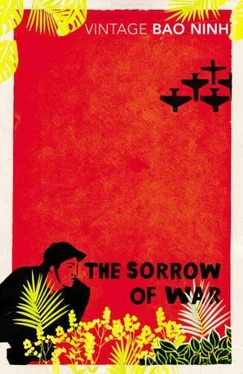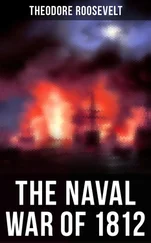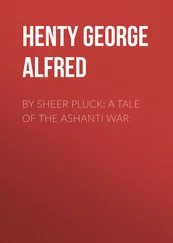She gave herself to save me, too. With that thought he eased the grenade lever back to its safe position. As the almost silent but barbarous multiple rape of young Hoa continued on the small jungle clearing in the dying minutes of the harrowing day, Kien crept off, away from them, towards his wounded men.
Kien that night followed Hoa’s trail to the river and made a successful crossing with the wounded.
He knew it was by then unlikely they would meet another patrol, especially at night, but he kept his hand on the grenade for hours, and the clasp felt warm. Not one of them asked about Hoa. At first he found it disagreeably strange. Then, with its acceptance he, too, began to forget about her. Was it that such sacrifices were now an everyday occurrence? Or that they were expected, even of such young people? Or worse, that they were too concerned worrying about their own safety to bother with others?
It was many years later that Kien, in the MIA team, returned to Crocodile Lake. Hoa’s image came to him the moment he arrived and he set off to find the old trail to the river bank, where they had smoked the Salem together, and he had apologised for wanting to shoot her. It all seemed so long ago, and because he couldn’t even find the head-shaped rock – it had been blown apart or washed away – it seemed a touch unlikely that it had ever happened. Of course it had, but not even finding the clearing where he had last seen her allowed him that escape into such possibilities.
What remained was sorrow, the immense sorrow, the sorrow of having survived. The sorrow of war.
But for Hoa and countless other loved comrades, nameless ordinary soldiers, those who sacrificed for others and for their Vietnam, raising the name of Vietnam high and proud, creating a spiritual beauty in the horrors of conflict, the war would have been another brutal, sadistic exercise.
Kien himself would have been dead long ago if it had not been for the sacrifice of others; he might even have killed himself to escape the psychological burden of killing others. He had not done that, choosing instead to live the life of an ant-like soldier, carrying the burden of every underling.
After 1975, all that had quieted. The wind of war had stopped. The branches of conflict had stopped rustling. As we had won, Kien thought, then that meant justice had won; that had been some consolation. Or had it? Think carefully; look at your own existence. Look carefully now at the peace we have, painful, bitter and sad. And look at who won the war.
To win, martyrs had sacrificed their lives in order that others might survive. Not a new phenomenon, true. But for those still living to know that the kindest, most worthy people have all fallen away, or even been tortured, humiliated before being killed, or buried and wiped away by the machinery of war, then this beautiful landscape of calm and peace is an appalling paradox. Justice may have won, but cruelty, death and inhuman violence had also won.
Just look and think: it is the truth.
Losses can be made good, damage can be repaired and wounds will heal in time. But the psychological scars of the war will remain forever.
The light which had been left on in Phuong’s apartment has now finally been turned off. It now seems to Kien that he has finally lost her. His days on this earth also seem numbered, and his existence seems meaningless. But in the light of day that, too, is melodramatic. He has to finish his novel and life cannot be ended until the writing is done.
Magazines buy his articles and he makes ends meet with small editing jobs. They occupy very little of his time and require no serious concentration and his by-lines in the magazines ensure he earns at least enough to cover costs.
The manuscript, meanwhile, grows longer and longer. The drinking continues, but the work continues, too. By night he goes to an all-night café on the lake, orders coffee, lights a cigarette and buys the morning newspaper. If he goes in the afternoon heat, when it is crowded and the streets still dusty, he is often approached: How’s the writing going? they ask.
‘Fairly boring,’ he replies.
‘That’s the famous author who lives on our block,’ he hears them say.
One afternoon he walks past a man selling cobras on the sidewalk. The snakes look as if they’re dead, exhausted by the demands of a hectic life and wishing to return to that other, safer jungle.
On the opposite side of the street, children gather around a blind man who sells colourful balloons.
Around the lake the homeless sleep on stone benches. Autumn leaves fall and make a soft carpet on the grass. The city is crowded, but sad. One day he set out to go to an office to work, but when he got to the street he turned round and went back, going upstairs and closing the door behind him.
Picture postcards from his writing life.
His friends live so far away from him now. They don’t write. Why don’t they write? He doesn’t write to them. He doesn’t speak to anyone much these days, just the mute lady who lives in the attic. His father’s old studio. ‘And then only when I’m pissed,’ he reminds himself.
Kien is back in his apartment in Hanoi as usual, his mind tumbling over when the story he starts to write emerges as boring, heavy and senseless. He had intended to write one thing but his pen took another direction, displaying a mind of its own. He is pondering whether to leave the page or to erase it when he recalls another story. A ridiculous story of a ridiculous wound he got at Dac To. ‘The South strikes again!’ he mused. ‘Now they’re using pretty agents!’ he laughed.
Wound? That’s what they called it. It was VD. He was in a military clinic when another soldier was brought in. Kien himself thought nothing of it. He found it hilarious that the commander of the garrison which later occupied Saigon chose Kien to help police his troops at night. So many of them were sneaking away to find girls near the airport. But the other soldier in the clinic was outraged, and afraid. He cried, agonised and bemoaned his luck.
Kien admonished him. ‘Surely this is nothing compared to your other wounds?’ he asked. He turned on Kien, telling him he was a fool. ‘This is worse than being blinded,’ he said dramatically.
He took it so seriously! Kien imagined him drumming up a little club of soldiers who got clap in the war, then discovering how insignificant his ‘wound’ was.
He lay back on his bed, his hands behind his head, contemplating his present state, the condition of the heart. He looked forward to the day when his health and normal zeal would be restored, and along with it his normal sexual desires; he could be quite happy trying to relive his youth. That would help him rid himself of his burdensome past and reduce his melancholia. On the other hand, there were certain important differences in his life now.
He had discovered he was happier when looking into the past; his path in life, which he had once assumed would be towards a beautiful future, had done a U-turn and taken him backwards into the murky darkness of the hard times his homeland had experienced.
Happiness seemed to lie in the past; the older he grew the rosier the past looked to him. Life before going south as a teenage soldier now seemed to him to have been one long, beautiful day.
In one of his more peaceful moments he reviewed the new lives his colleagues had settled into after the war. Some had stayed south, for the warmer climate, or better economic opportunities, or perhaps they had just reached the end of their march in life. Others had stayed in the Central Highlands. Perhaps they wished to avoid returning north to a boring life.
Many of those who returned to the Highlands after the fighting now enjoyed healthy, outdoor, free living. They were farming pasture-lands or working in the jungles, or in new villages created along the Poco, Sa Thay, Serepoc or Ya-Mo rivers. The hells of yesteryear were now the scenes of peaceful rural tranquillity. In the dim past a political commissar had lectured him on his post-war life. He’d forgotten which commissar, but his advice went like this: ‘You’ve been in action in the south for several years. You have suffered hardships, and stained your hands with blood. From now on, you’d do better to live close to nature and be closer to ordinary working people. That will ease your suffering and bring you happiness.’
Читать дальше












